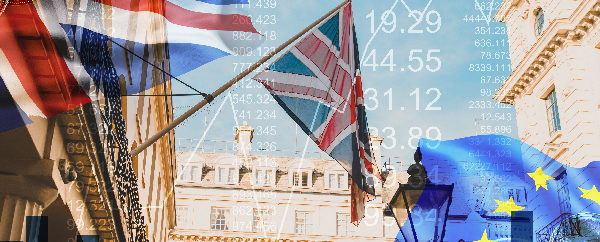A new BBC podcast looks at the story behind the OneCoin cryptocurrency and the £4 billion investors poured into it before its co-founder Dr Ruja Ignatova disappeared in 2017.
The cryptocurrency is now considered to have been a Ponzi scheme scam and Jamie Bartlett’s ‘The Missing Cryptoqueen’ looks at how Dr Ruja, as she was commonly known, was able to entice investors to put in such vast sums before simply vanishing.
Dr Ruja hosted glitzy launch events to sell the concept of OneCoin, including at Wembley Arena in London in 2016, just a year before her disappearance.
Her events featured energetic walk-on music before Dr Ruja would present to the excited audience about how OneCoin would soon be worth more than Bitcoin and how other start-up cryptos were attempting to copy it.
But in early 2017, the OneCoin trading platform closed without notice, leaving investors unable to withdraw their funds from the currency.
What just happened?
OneCoin was structured as a Ponzi or pyramid scheme, with the promise of greater benefits to those investors who bought higher-value packages, some valued in the hundreds of thousands of euros.
As early as 2015, Bulgaria – where two of OneCoin’s mining servers were located – warned of the risks of cryptos specifically including OneCoin.
After that, the cryptocurrency ceased activity in Bulgaria, switching to foreign banks to process wire transfers when investors wanted to withdraw funds.
Extracting income from OneCoin was relatively difficult too – the only way to do so was via OneCoin Exchange, and was only possible for investors who purchased above the basic starter level.
Strict limits meant only a certain number of OneCoins could be converted into euros per day, again depending on the level of investment, after which a wire transfer could be requested.
At the start of 2017 the exchange shut down without warning, leaving no other way for OneCoins to be redeemed for currency that can be withdrawn or transferred to a conventional bank account.
Where is Dr Ruja?
Even after 2015, Dr Ruja continued touring the world and promoting OneCoin to investors in a total of 175 different countries, according to the BBC podcast.
In 2016, a six-month global tour brought in much of the total investment made into OneCoin, with about £26 million paid in by investors in the UK at that time – and potentially close to £100 million invested by Brits over the lifetime of OneCoin.
The scam covered the full range from rich to poor, with substantial investment from China, Hong Kong, Germany and South Korea, as well as Bangladesh, Uganda and Vietnam.
As of 2019, Dr Ruja Ignatova was charged by the US Department of Justice with money laundering, and the authorities there branded OneCoin a simple pyramid scheme fraud.
Does blockchain have a future?
The anonymity of cryptocurrencies has made them hugely popular in their early years, but it also lends itself to scams of this nature.
That raises the question of whether cryptos have a future and especially whether the blockchain technology that powers them will remain popular in the years ahead.
For now it seems likely that the benefits of blockchain will continue to be appreciated more than the risks, and there are reports on a daily basis of new applications for the tech – such as our own recent report on IBM’s blockchain-powered platform for more ethical cobalt mining.
Risk-averse investors might not appreciate the huge volatility that has been seen in crypto valuations, but for those prepared to gamble, there have certainly been substantial gains to be made over the past decade or so.
And as cryptos continue to mature, they are finding favour with household digital brand names like Facebook, which is working with regulators to launch its own crypto, Libra, with the governments of the countries in which it launches brought on-side from the start.
What about OneCoin?
Legal challenges to OneCoin continue since the disappearance of Dr Ruja, with nearly 100 people prosecuted in China alone, where 1.7 billion yuan of funds have been recovered.
The BBC reports that the company behind OneCoin still argues that it “verifiably fulfils all criteria of the definition of a cryptocurrency”.
The company also told the broadcaster that The Missing Cryptoqueen “will not present any truthful information and cannot be considered objective, nor unbiased”.
“Our partners, our customers and our lawyers are fighting successfully against this action around the globe and we are sure that the vision of a new system on the basis of a ‘financial revolution’ will be established,” it added.
However for those investors unable to withdraw funds from the scheme – and instead left holding a balance of virtual OneCoins with no real-world value – the ‘financial revolution’ may feel as intangible as the currency around which it is based.
https://www.bbc.co.uk/news/technology-49826161
https://www.bbc.co.uk/programmes/p07nkd84/episodes/downloads
Disclaimer: The information provided here is not investment, tax or financial advice. You should consult with a licensed professional for advice concerning your specific situation.




